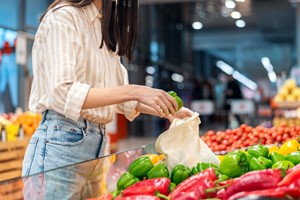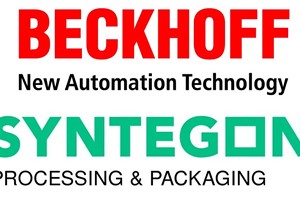The F&B sector has witnessed a significant rise in the number of online food ordering and food delivery companies in recent years, with the pandemic accelerating growth in this sector. Maya Bekhazi Noun, founder and managing director of The Food Studio, tells us why online food delivery is here to stay and how technology is playing a role.
Globally, food delivery has increased by 25 percent in the last three years alone, while it is estimated that online sales will make up as much as 40 percent of total restaurant sales by 2023.
This growth is bolstered by user-friendly apps, rising urban populations and innovations in food delivery services. It has become much simpler for clients to order their favorite dish and for food companies to reach their clients.
What’s trending?
Major trends that are shaping food delivery will continue their upward trajectory, such as increased third-party delivery, investing in inhouse restaurant delivery fleets, prioritizing delivery data, tracking, online groceries, food delivery subscriptions and the presence of tech giants.
Third-party delivery
Third-party delivery will continue to grow as its usage increases across the food industries. Even restaurant chains are partnering with multiple third-party fleets in order to expand their delivery footprint across all their stores and at all times of the day. While this tactic expands the chain’s geographic reach, it also means that a significant chunk of its delivery operations is not under its control. However, food delivery management software provides much needed visibility and control over its delivery operations and KPIs, even for data that originated from third parties.
Apps
Food delivery apps have streamlined access to a vast number of restaurants, facilitating smooth and speedy home delivery. By offering special menus, discounts and exclusive meal deals, these apps tempt customers to download them and place orders through a few simple taps. Unsurprisingly, a recent global market report on online food delivery services stated that this market is set to expand.
Dispatching software and tracking delivery data
Some companies are taking a completely different approach by building in-house delivery fleets and investing in delivery dispatch software to smoothly manage these operations. Besides control, it offers some other great benefits, such as automating the assignment of drivers. Logistics become increasingly complex when delivery happens at scale, with hundreds of daily orders each day, which is why chains managing delivery
across multiple restaurants opt to use delivery management software systems. Undoubtedly, the best way to stay ahead of the competition is to measure, analyze and improve performance. With such a large part of the delivery flow in the hands of third parties, it’s not surprising that food providers are turning to data collection and analysis to better understand their delivery operations. Having delivery data is invaluable, benefiting everything from relations with external fleets and aggregators to business development, customer care and fidelity, marketing and branding.
Tech giants
Tech giants have stepped onto the food delivery scene with investments and new services due to the fact that a significant percentage of revenue is generated through online sales, delivery, takeaway and drive thru
Food delivery subscription and membership
Delivery subscriptions and the rise in specialized online food delivery are driving great change in the food delivery industry. As younger generations often prefer staying in to going out, dining in with a customized meal kit has become common place. Indeed, pre-packed fresh meals, menu kits with raw ingredients and other home food kits that save customers time are top choices for customers that prioritize convenience above all else. Subscription boxes also cater to consumers who are interested in trying novel and unusual cuisines, something that the booming food market has enabled. Add to this the rising number of consumers looking for vegan, organic, gluten-free, paleo or ethically sourced food, not to mention the huge increase in demand for these services during the pandemic, and you’ll understand why this service has proven to be extremely profitable for restaurateurs.
With online orders growing at a faster pace than ever before, food operators and restaurants have an unprecedented opportunity to increase profit margins and customer reach by creating alternative services and products. However, the challenge will be to balance customer demand for fast, convenient and transparent delivery with the logistical complexity and expenses required to meet these demands.
Maya Bekhazi Noun
co-founder and managing director of The Food Studio
https://www.hospitalitynewsmag.com/














